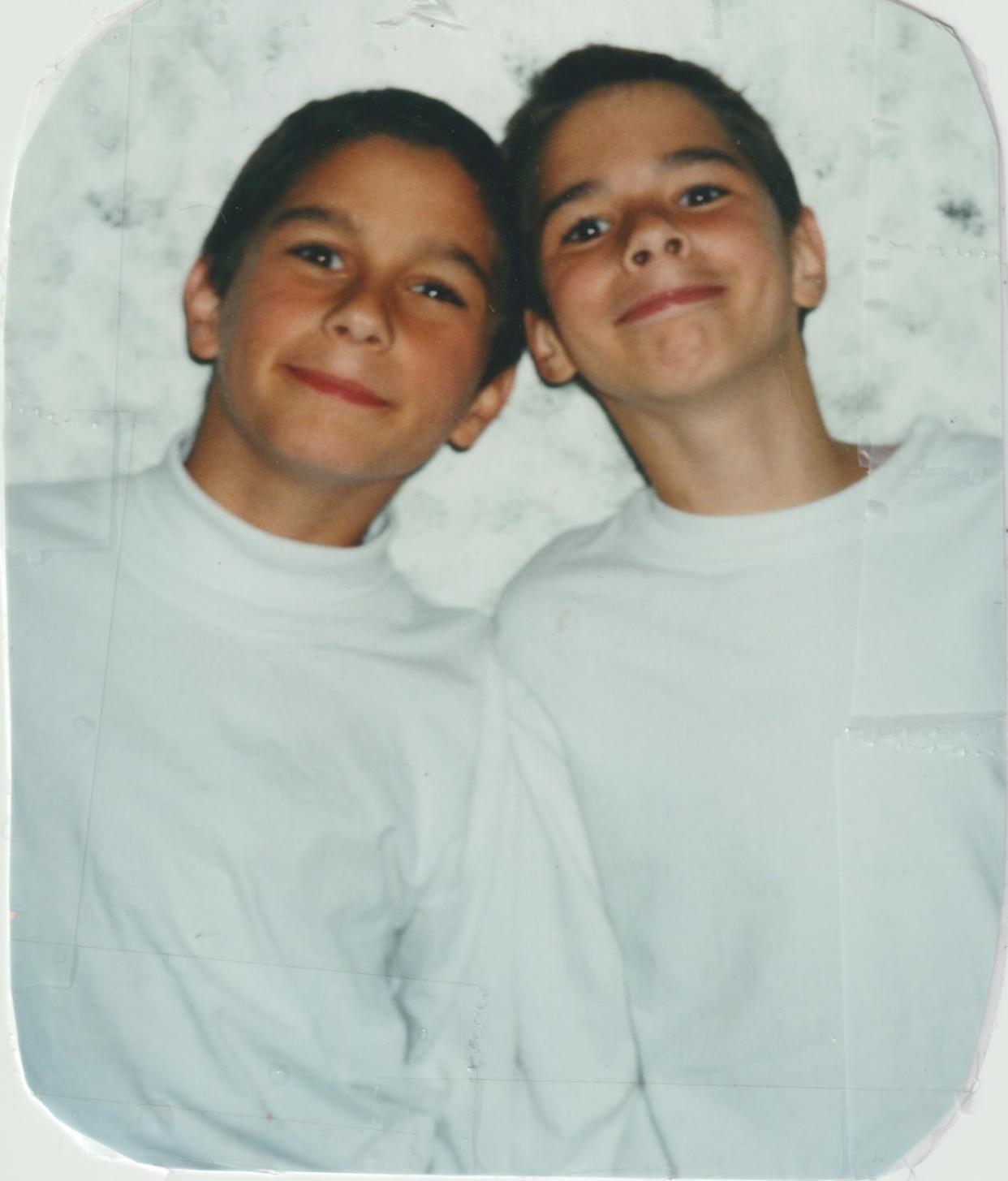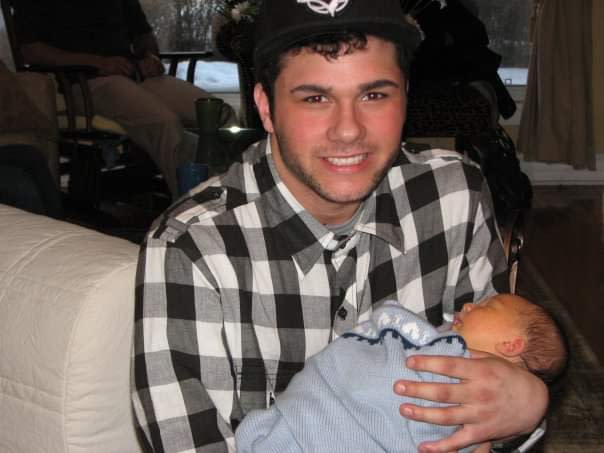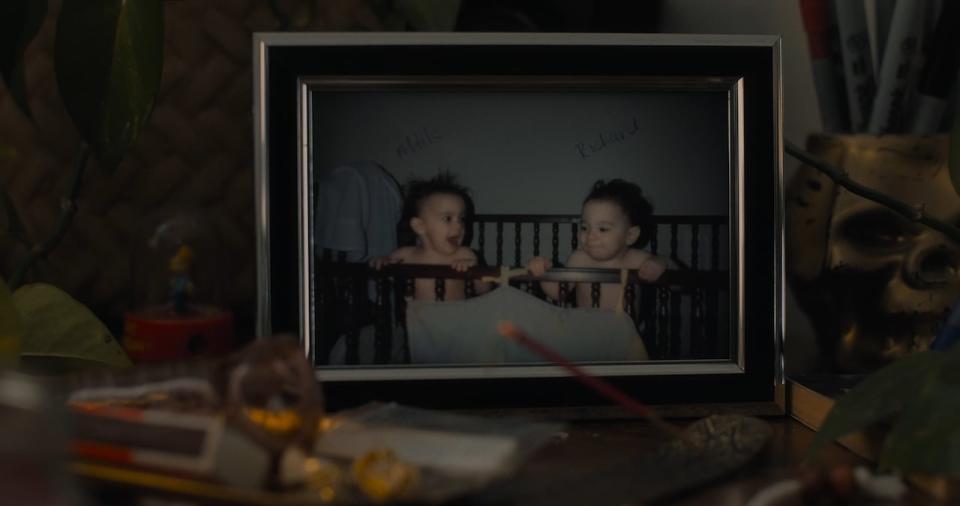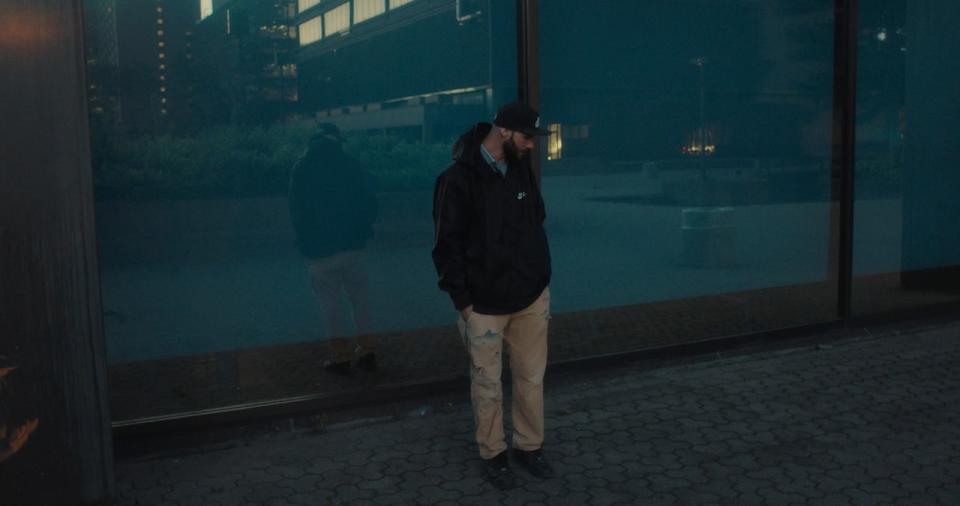Man who died on Hamilton mall roof felt impact of 'horrendous' abuse in foster care for years, brother says

Warning: This article contains distressing details, including of child abuse and sexual assault.
Starting when they were six years old, twin brothers Attila and Richard Csanyi survived "horrendous" physical, sexual and emotional abuse in a Toronto foster home — experiences that would impact them for the rest of their lives.
Richard, who testified on the second day of the inquest into Attila's death, said the abuse took place over two years in the late 1990s.
"There's horrendous things that happened to children that shouldn't happen in this country, or the world," Richard said Wednesday.
The inquest, expected to last up to three weeks, is examining the circumstances surrounding the death of the 28-year-old, who was found on the rooftop of Hamilton's Jackson Square in 2020 following a drug overdose.

Attila Csanyi died on May 2, 2020. (Stoddart Funeral Home)
Attila had been diagnosed with schizophrenia, was receiving treatment at St. Joseph's Healthcare and had been evicted from a residential care facility less than two months before he died, Richard said.
A five-person jury will hear from Attila's family, experts and witnesses and, at the conclusion of the inquest, may make recommendations to prevent similar deaths.
'A sick man to live with'
The twins were the youngest of nine children growing up in subsidized housing in Toronto. Attila was outgoing and energetic, but also vulnerable to being taken advantage of, Richard said.
Their home life was "chaotic" but their parents were loving and caring, Richard said. His father worked long hours and their mother experienced mental illness.
Richard said the twins were placed in foster care by the Children's Aid Society against his parents' wishes.
At the foster home, the abuse started when a person who was not one of his foster parents moved in, Richard said. That man was known to have "a past history with police."
Richard described the abuse they faced, including being punched, bitten and hit with a belt or wooden stick, being tied up and thrown down stairs, and urinated and defecated on. The person who had moved in also sexually assaulted them, he said.
"This was a sick man we had to live with."
The twins survived by supporting one another, crying together, conspiring on ways to escape and sleeping in the same bed "back to back so if one of us was going through abuse, we'd both be going through it," Richard said.
"Attila took the brunt of the abuse; he sheltered me from it," he said.
"Our fears continued into the next home and today. At least Attila is at peace with not having those things in his mind anymore."
A fear of authority figures
After about two years, the two brothers were moved to a foster home in Lindsay, Ont., where a couple adopted them — a change that saved their lives, Richard said.
Jai Dhar, the inquest counsel, described what the brothers went through as "unbelievable trauma" with the effects persisting into adulthood.
Both boys moved back to Toronto in their late teens, Dhar said. Attila was a talented baseball player, but also began showing symptoms of schizophrenia, and had difficulties staying employed and housed.

Attila and Richard Csanyi in a crib. (Submitted by Nisus Pictures)
"Somehow in his beautifully damaged mind, he would escape the horrors we have endured by making jokes and entertaining those around him," Richard said.
Richard described four years of trying to get his brother treatment in Toronto, Mississauga and Brampton, but he said Attila was only offered "Band-Aid interventions."
He would be released from hospital without a diagnosis, treatment plan or followup appointments. Richard estimated he attempted to get Attila help at least 30 times as he experienced agitation, delusions of grandeur, hallucinations and self-harm. He wasn't violent but others could think he was threatened.
The abuse Attila suffered in foster care also impacted his life. He had difficulties sleeping and was plagued by nightmares, Richard said.
"There was also a great sense of fear," he said. "Those fears travel to authority figures — police, doctors, medical professionals. We didn't know who to trust."
Finally, in 2018, Attila, with Richard's support, moved to Hamilton and got treatment at the psychiatric unit at St. Joseph's. He responded well to medication and received a community treatment order, Richard said.
That meant he was discharged from the hospital as long as he continued to see a psychiatrist and receive regular injections of medication.
Brother not notified of evictions
Attila lived in two lodging and rest homes but was evicted from the second one on March 11, 2020, right before the COVID-19 pandemic, Richard said.
He noted that at the second home, he wasn't told he wasn't allowed inside to visit Attila or see his room.
To this day, Richard doesn't know why his brother was evicted and said he wasn't notified Attila was being evicted or there were any issues.
"It feels like nobody put in efforts to contact me about the evictions."
But Attila, who was on a wait-list for subsidized housing, briefly stayed with his father, Alex Geczi, in Hamilton, said Geczi, who also addressed the inquest. Attila was doing well and on medication, talking about his future, writing, singing and playing games, Geczi said.
Geczi said Attila left his place one day to run an errand and turned around to say "I love you." That was the last time Geczi saw him.
Attila then lived on the streets, sometimes staying at emergency shelters, said Richard.

Richard Csanyi visiting Jackson Square where his brother was found dead. (Submitted by Nisus Pictures)
Richard last saw his brother in April, when Attila knocked on his door late one night in Mississauga, Richard said.
"When I answered the door, immediately I was concerned," Richard said.
He noticed Attila had sores on his body, possibly from injecting drugs, Richard said. He tried to get him help, contacting police for example, but Attila went back to Hamilton.
By mid-May, it became clear to his family that Attila was missing, Richard said. He started searching for him and alerted Hamilton police.
Richard said police told him in June that Attila had been identified and had actually died on May 2 after overdosing on a combination of fentanyl and methamphetamine.
In the coming weeks, the inquest will hear from police, city workers, St. Joseph's, the lodging homes and other experts. It continues Thursday.
For anyone who has been sexually assaulted, there is support available through crisis lines and local support services via the Ending Violence Association of Canada database. If you're in immediate danger or fear for your safety or that of others around you, please call 911.


